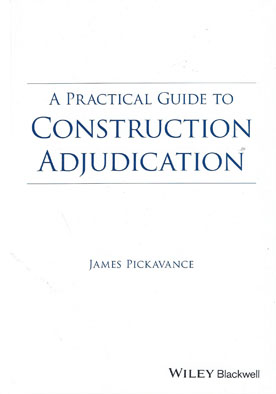We will be closed from 5pm Thursday 17th April for the Easter Bank Holidays, re-opening at 8.30am on Tuesday 22nd April. Any orders placed during this period will be processed when we re-open.

In the United Kingdom, adjudication is available as a right for parties to a construction contract, following the enactment of the Housing Grants Construction and Regeneration Act 1996. In general, within a comparatively short period of time, parties in dispute will have a decision from an adjudicator, which, except in limited circumstances, the courts will enforce. Adjudication has become the number one method of dispute resolution in the construction industry. The short timescale means that a party needs to know what to do, when to do it and be able to check that the other party and the adjudicator are following the right steps.
A Practical Guide to Construction Adjudication gives parties the necessary information to achieve this. It provides a straightforward overview of the process and procedure of adjudication by reference to legislation and case law, augmented with practical guidance including suggestions on what to do or not to do, drafting tips and checklists. Separate chapters for Scotland and Northern Ireland identify and explain the differences in procedure and judicial interpretation between those jurisdictions and England and Wales, and further detailed explanations of the adjudication regimes in Australia, Ireland, Malaysia, New Zealand and Singapore are included. Each of the chapters on jurisdictions outside England and Wales has been written by senior experts in those jurisdictions to ensure the content is accurate and insightful.
There are a range of helpful appendices including a bank of model form adjudication documents and tabulated detailed comparisons of the Scheme for Construction Contracts, the other major adjudication rules, the major adjudicator nominating bodies and the UK and international regimes. Readers will particularly appreciate the most comprehensive index of adjudication cases available, sorted into 260 subject headings providing immediate access to all the reported cases on any adjudication topic.